I’m having my kitchen renovated. It’s well overdue; the last makeover was probably in the 1990s, and the original stove/oven is aesthetically pleasing, but impractical.
While removing the old kitchen, the builder found an old newspaper: it’s pages from The Age of 1st April 1938.
My house dates from about 1929 or 1930, but this probably gives an indication of when the house had a small extension added, which brought the outdoor dunny inside, and added a laundry and a small room to the back.
It’s pages 5 to 16. The front page of the paper isn’t there, but finding the same edition on Trove shows an unfamiliar layout – the front page was full of classified ads, not news, and isn’t that interesting.
News was inside the paper. Page 11 has mostly world news. They didn’t know it at the time, but World War 2 was a year and a half away, and clearly tensions were increasing, with Mussolini declaring Italy was ready for war…
…and then Mayor of New York City Mr La Guardia criticising the Nazis.
In news closer to home, from Warracknabeal was a proposal for the unification of Australia’s railway gauges. Good idea. Shame it never happened.
Adverts included whisky, cigarettes, ethyl (an additive for car engines; I’m not sure if it’s related to ethanol) and this bus:
If you flick through it all on Trove, you’ll also find stories included the rail line to Perth about to get faster timetables, “boisterous weather” with a dust storm (which also delayed trams at Brighton Beach), a proposal for an airport at Fishermans Bend, and an article about a court case over a road accident at North Road and Point Nepean Road – then with no traffic lights, and a requirement to give way to the right.
I didn’t spot any mention of April Fools’ Day, presumably not observed in Australia at the time.
Trove is missing pages 17 and 18 – unfortunately I can’t help, I don’t have those either.
Finally, this bit of late breaking news caught my eye (not in Trove’s version): Vehicle hits railway gates.
So Macaulay Road level crossing was dangerous and congested, even back then?
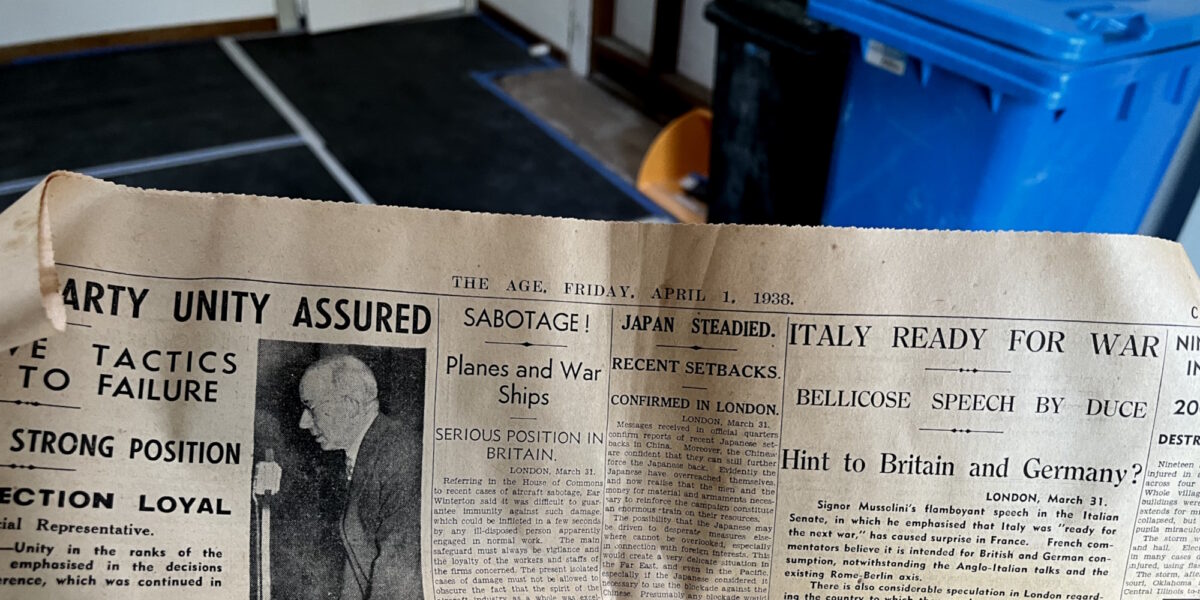
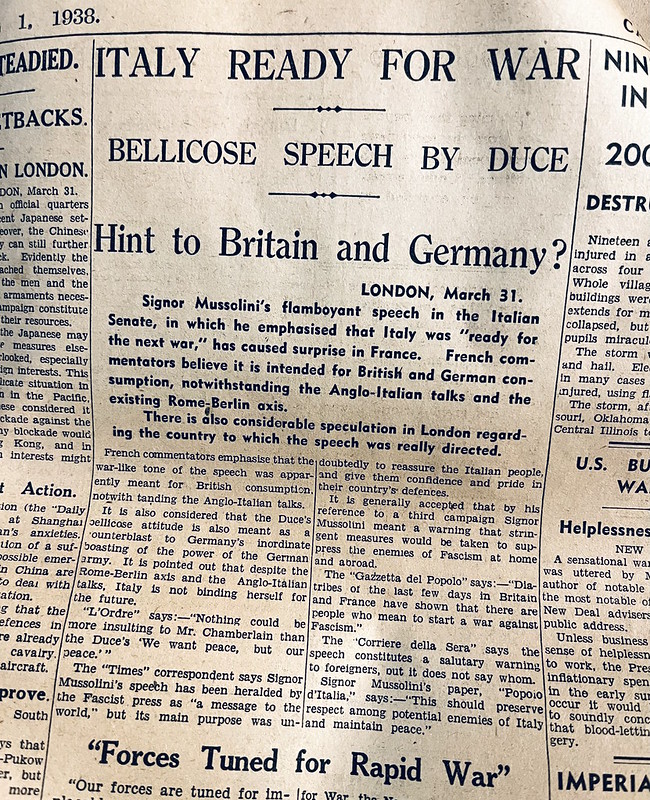
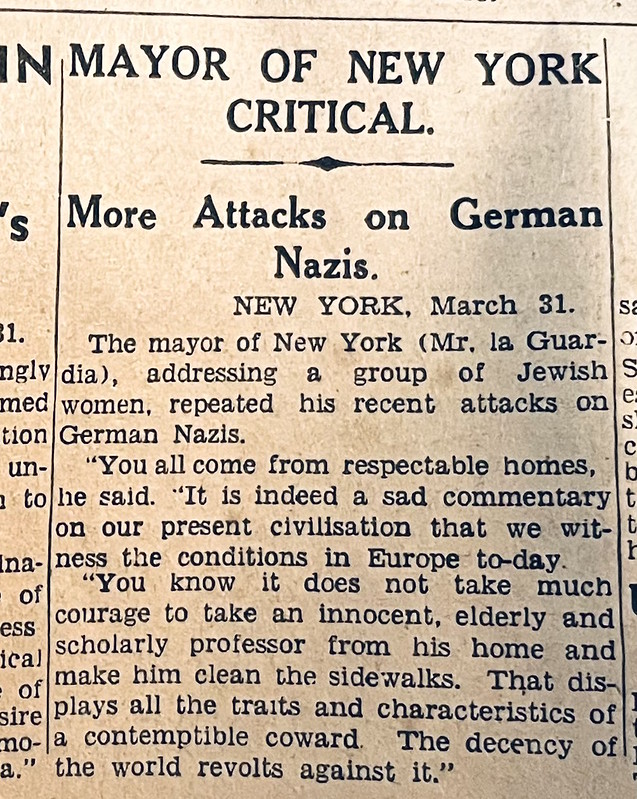
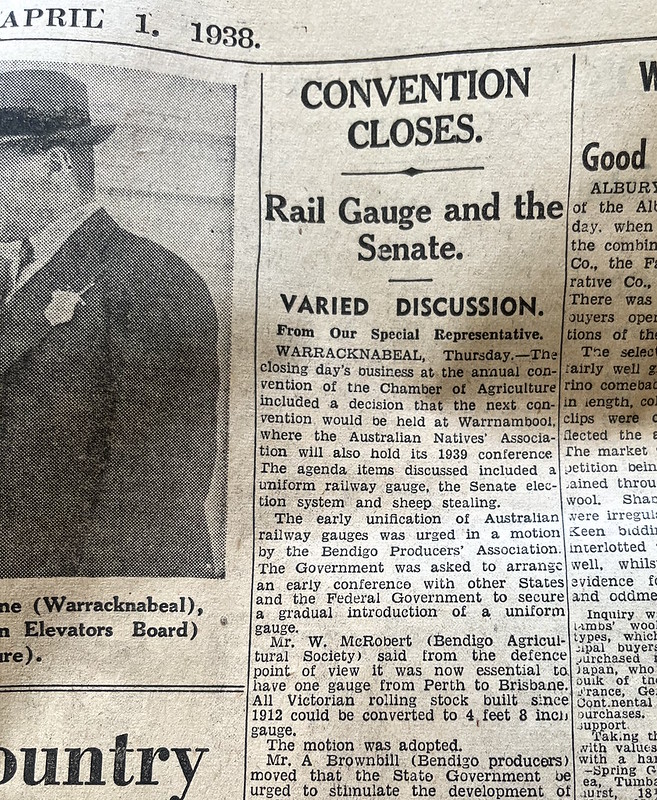
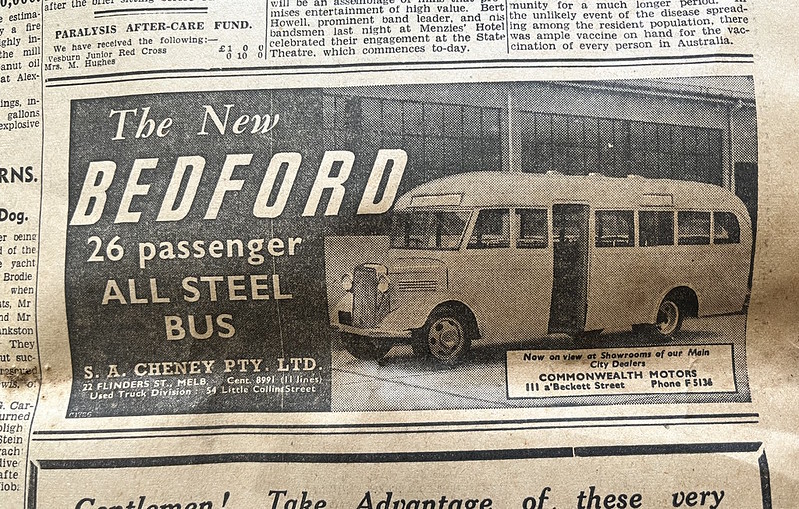

5 replies on “The news from 1st April 1938”
“Ethyl” would have been tetraethyl lead.
https://en.wikipedia.org/wiki/Tetraethyllead?wprov=sfla1
(Yeah! The stuff that we finally phased out decades later but is still polluting our soil and in our bodies! Hurray!)
That’s fantastic, Daniel.
I live near Park St Brighton where the sandstorm affected trams and the road.
“Ethyl” was tetraethyllead or TET, the anti-knock compound that was added to petrol and made it “leaded”. Two researchers at General Motors, Midgley and Kettering, discovered its anti-knock properties in 1921, following which cars were designed to expect it in the fuel.
GM also had an aircon company (Frigidaire), and Midgley also developed the CFC refrigerant Freon at GM. Thomas Midgley therefore has the dubious distinction of being responsible for two environmental disasters, lead pollution from petrol and the ozone hole.
Midgley contracted polio, and invented a Wallace-and-Gromit style contraption to get himself out of bed, which accidentally strangled him in 1944.
Thanks guys, I was wondering if Ethyl was effectively the lead in petrol.
There’s an excellent recent podcast on Midgley here:
https://thewaroncars.org/2023/10/10/112-unintended-consequences-with-steven-johnson/
[…] Week 1 – It started well with most of the old kitchen demolished in the first day – which is when they found the 1938 newspaper. […]